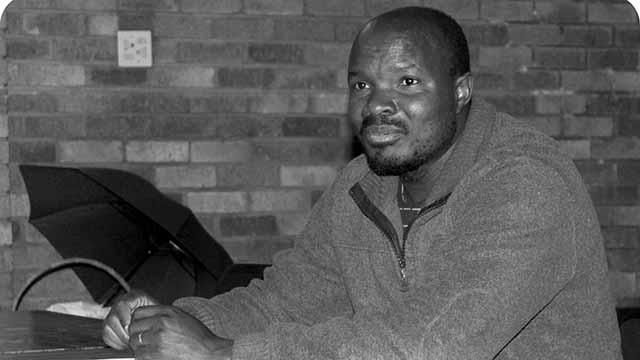
By Thandi Bombi
“No one is safe in Zimbabwe, not even Mugabe thinks he is safe.”
Professor Enocent Msindo, Deputy Dean for Research in Humanities cut to the chase during his talk on “Factionalism and Robert Mugabe’s Leadership in Zimbabwe” as part of the lecture series organised by the Friends of the Library to raise funds for the eight libraries in Makana Municipality.
On Monday, 16 October, Professor Msindo began by introducing Mugabe, the figure whose image has changed drastically in the 1990s. “Mugabe used to be seen as an icon in Zimbabwe and internationally particularly when Mandela was rising as an important figure during the transition in South Africa. Mugabe and Mandela became true competing regional lords,” he recalled.
He explained that in the mid-1990s, voices of dissent against Mugabe’s leadership began to arise within the party with some kind of fractures in his party ZanuPF. The opposition to Mugabe’s rule began to emerge from some of the people who had left ZanuPF because they were disappointed about some internal body politics of the party.
“In the late 90s opposition to his leadership had grown and strengthened, and yet to this day the ageing statesman still manages to cling to power. Mugabe has used the politics of factionalism both to achieve and sustain the leadership of his party, Zanu-PF, and Zimbabwe,” he said.
Msindo paints a gloomy picture of Zimbabwean and largely, African politics. "This demonstrates how he has put all these little dogs on a leash one in his left hand and the other in his right hand. They are allowed the latitude to bark at each other. They are systematically kept in the position and allowed to bark just enough that they do not destroy what is left of the party itself,”
This, he argued, is an indication of the crisis of governance particularly as liberation movements fail to continue to brand and become relevant. That is how factions emerge as people jostle for power.
Professor Msindo explained that although the media has made some of these issues available for public consumption, but information that mattered was still not available.
“It was important to actually find out from WikiLeaks how the Mugabe government was actually speaking to Americans and selling secrets to them. So we found WikiLeaks was a rich source to reflect some of these issues well hidden within ZanuPF politics,” he added.
Friends of the Library holds a series of lectures throughout the year organised by Rosemary Smith to boost the standard of public libraries in the Makana Municipality, particularly Hill Street, Duna, Fingo Village, Alicedale, Riebeek East, Extension 9 and the Mobile Library.
The last lecture of the year will be on 9 November on Syria as it was before the war. All are welcome and entry is by donation.

